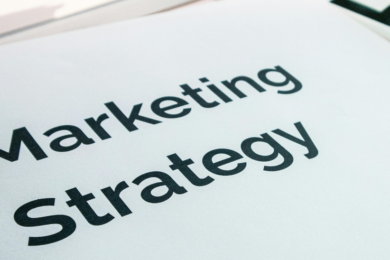Five Marketing Predictions for 2025
Jan 2, 2025By this point, most marketers have become accustomed to the never ending whirlwind of change and evolution in the digital…

Many manufacturing companies build their success on product quality, engineering excellence and operational efficiency. Marketing can sometimes feel like a secondary concern, but a strong digital marketing strategy in any industry is no longer a “nice-to-have”. It is an essential tool for generating leads, nurturing client relationships and future-proofing your business in a competitive market.
This guide is for manufacturing companies that need a powerful B2B marketing strategy and a powerful route to growth. We will cover foundational strategies that help you understand your market and how digital channels can make your growth sustainable.
Before you spend a single pound on advertising or a minute on social media, you need a robust strategy. Without a strategy, your marketing efforts will be disconnected and ineffective. A solid strategy ensures every activity is purposeful and contributes to your business goals.
The way B2B buyers find and choose suppliers has changed. The journey is no longer linear. It is a complex process involving multiple touchpoints and stakeholders. A typical journey might involve an engineer searching for a solution to a technical problem, a procurement manager comparing supplier costs and a director looking for long-term partners.
Your marketing must be present at each stage of this journey, providing valuable information that helps them move forward. This means creating content that helps to inform an initial awareness of a problem, their consideration of different solutions and their final decision-making process.
You cannot effectively market to a vague audience. You need to know exactly who you are talking to. Customer personas are semi-fictional representations of your ideal clients based on market research and real data about your existing customers.
A good persona for a manufacturing company should include:
Understanding your competitors’ strengths and weaknesses is crucial. A digital marketing competitor analysis helps you identify opportunities to differentiate your brand and capture market share.
Read our digital marketing competitor analysis guide now.
Look at what your key competitors are doing online:
This analysis is not about copying your competitors. It is about identifying gaps in their strategy that you can exploit and finding ways to position your brand as the superior choice.
With your strategy in place you can now focus on execution. These are the core digital marketing channels that deliver results for manufacturing companies.
Your website is the cornerstone of your digital presence. It is often the first impression a potential client has of your business. It needs to be more than just an online brochure, it must be a 24/7 sales and lead generation tool.
An effective manufacturing website should be:
Engineers and procurement managers use Google to find solutions and suppliers. If your website does not appear on the first page for relevant searches you are invisible to a huge portion of your target market. SEO is the process of optimising your website to rank higher in search engine results.
Key elements of SEO for manufacturers include:
While SEO delivers long-term organic growth, paid media or Pay-Per-Click (PPC) advertising can deliver immediate results, no matter the budget. Platforms like Google Ads and LinkedIn Ads allow you to place your business directly in front of a highly targeted audience.
With PPC you can:
Social media for manufacturers is not about posting funny memes. It is a powerful tool for brand building, networking and lead generation. LinkedIn is the most important platform for most B2B manufacturing companies.
Use LinkedIn to:
Posting high-quality photos and videos of your machinery, your processes and your team in action can build credibility and trust in a way that text alone cannot.
Marketing for manufacturing companies is a strategic investment that drives measurable growth. It starts with a deep understanding of your customers and your competitive landscape. From there you can build a powerful digital presence through a high-performance website targeted SEO paid media campaigns and strategic social media engagement, for example.
By integrating these elements you create a robust marketing engine that consistently attracts new prospects, nurtures them through their buying journey and converts them into long-term valuable clients.
Lean on our expertise now to generate B2B marketing results for your manufacturing company.

By this point, most marketers have become accustomed to the never ending whirlwind of change and evolution in the digital…

In high-stakes sectors like defence and aerospace, effective marketing is about building trust, demonstrating unwavering reliability and navigating a unique…

Staying top of mind with decision makers is more challenging than ever in competitive B2B sectors. Prospects are flooded with…

As 2025 draws to a close, it’s time to reflect on how Google’s confirmed SEO algorithm changes played out and…